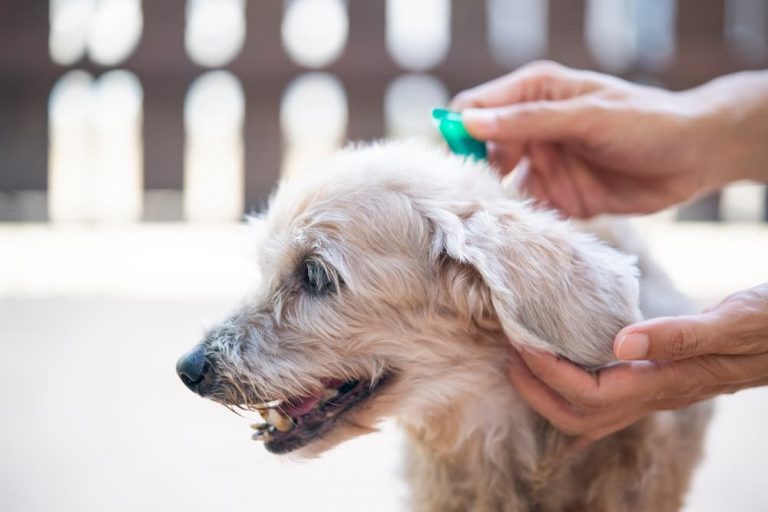Flea treatments dogs are essential for protecting your pet from parasites. Discover vet-approved flea & tick prevention, safe dog parasite treatments, and top products for 2025.
Introduction
Fleas and ticks are some of the most common and frustrating parasites affecting dogs worldwide. Not only do they cause itching and discomfort, but they also pose serious health risks such as Lyme disease, flea allergy dermatitis, and other infections. For dog owners, finding vet-approved flea control that is both effective and safe is a top priority.
In this comprehensive guide, you’ll learn about the best flea treatments for dogs, tick treatments for dogs, and how to prevent infestations using safe, trusted methods recommended by veterinarians. Whether you prefer natural flea remedies, topical applications, or oral medications, this article covers it all to help you protect your furry friend in 2025 and beyond.
Flea collars dogs offer a convenient and long-lasting way to protect your pet from fleas and ticks. Modern flea collars release safe, vet-approved insecticides gradually, helping prevent infestations and reduce bites. When choosing a flea collar for your dog, consider the size, age, and any sensitivities to ensure maximum effectiveness and comfort.

Effective flea tick prevention is crucial for keeping your dog healthy and comfortable. Using vet-approved treatments like topical solutions, oral medications, and flea collars can protect your pet from harmful parasites year-round. Regular grooming and maintaining a clean environment also help reduce the risk of infestations, ensuring your furry friend stays happy and parasite-free.
Effective dog parasite treatment involves using safe, vet-recommended medications to eliminate fleas, ticks, worms, and other common parasites that threaten your dog’s health. Early detection through regular check-ups and proper hygiene can prevent serious infections, keeping your pet safe and comfortable. Combining treatments with preventive measures ensures long-term protection against parasites.
Safe flea treatments protect your dog from pesky fleas without harmful side effects. Vet-approved options like topical spot-ons, oral medications, and flea collars provide effective, gentle protection. Always choose products suitable for your dog’s age and health, and consult your vet to ensure safe and effective flea control.
Why Flea & Tick Prevention Is Critical for Your Dog’s Health
Fleas and ticks don’t just cause irritation — they can transmit dangerous diseases like:
- Lyme disease
- Anaplasmosis
- Flea allergy dermatitis
- Tapeworms
Uncontrolled infestations can also lead to anemia in puppies or small dogs due to blood loss. Preventing these parasites early with dog flea prevention strategies ensures your pet’s comfort and long-term health.
Top Vet-Approved Flea Treatments for Dogs in 2025
Veterinarians recommend a range of flea control products based on your dog’s size, age, and health status. Here are the most trusted top flea tick products:
1. Oral Flea Medications
Oral flea meds provide systemic protection and are highly effective.
- Examples: NexGard, Bravecto, Simparica
- Benefits: Easy to administer, kills fleas and ticks quickly, lasts 1-3 months
- Safety: Vet-prescribed and generally safe for most dogs
2. Spot-On Treatments
Topical solutions applied to the skin behind the neck.
- Examples: Frontline Plus, Advantage II, Revolution
- Benefits: Kills fleas and ticks on contact, prevents eggs from hatching
- Safety: Keep dogs from licking the application site
3. Flea Collars for Dogs
Modern flea collars release active ingredients slowly for months.
- Examples: Seresto, Scalibor
- Benefits: Long-lasting, water-resistant, effective against fleas and ticks
- Safety: Monitor for skin irritation
4. Flea Tick Shampoo
Shampoos help kill fleas on contact and soothe irritated skin.
- Examples: Adams Flea & Tick Shampoo, Vet’s Best Flea & Tick
- Benefits: Immediate relief, good for dogs with skin sensitivities
- Safety: Use as directed to avoid drying out skin
Effective Tick Treatments for Dogs
Ticks require special attention as they embed themselves into your dog’s skin. Here are vet-approved options for tick treatments dogs:
1. Tick Removal Tools
Manual removal with tick tweezers or a tick remover hook is essential.
- Tip: Remove ticks gently and fully to avoid infections
- Aftercare: Clean bite site and watch for swelling or redness
2. Tick Repellent Sprays and Spot-Ons
Many flea treatments also repel ticks.
- Examples: Frontline Plus, Seresto collar
- Benefit: Provides dual protection from fleas and ticks
3. Oral Tick Medications
Medications like Bravecto kill ticks systemically for months.
4. Environmental Tick Control
Treat your yard and home with safe acaricides to reduce tick populations.

Natural Flea Remedies: Do They Work?
Many pet owners seek natural flea remedies as alternatives to chemicals. Some popular options include:
- Diatomaceous earth: A powder that kills fleas by drying them out
- Essential oils: Such as lavender or neem (use with caution, some oils are toxic to dogs)
- Apple cider vinegar: Used as a topical spray for mild prevention
Note: Natural remedies may help but are not substitutes for vet-approved treatments, especially in heavy infestations.
How to Choose the Best Flea & Tick Treatment for Your Dog
When selecting flea and tick products, consider:
| Factor | Details |
|---|---|
| Dog’s Age & Size | Some treatments are for dogs over a certain weight or age |
| Health Status | Consult vet if dog is pregnant, nursing, or has health issues |
| Lifestyle & Environment | Dogs in wooded or grassy areas need stronger prevention |
| Treatment Frequency | Oral meds usually last longer than spot-ons or shampoos |
| Safety | Always follow product instructions and vet advice |
Preventing Flea & Tick Infestations: Daily Care Tips
- Regular Grooming: Brush your dog frequently to spot fleas early
- Clean Bedding: Wash dog beds and blankets weekly in hot water
- Yard Maintenance: Keep grass short and remove leaf litter
- Routine Vet Checkups: Discuss parasite prevention at every visit
- Use Preventive Products Year-Round: Especially in warm climates
Real-World Case Study: How Vet-Approved Flea Control Saved Bella
Bella, a 3-year-old Labrador, suffered from severe flea allergy dermatitis, causing intense itching and hair loss. Her vet prescribed a combination of oral flea meds and a Seresto collar. Within weeks, Bella’s symptoms improved dramatically, and regular treatment has kept fleas away ever since. This case highlights the importance of timely vet-approved flea control.

Internal & Outbound Links
- Learn more about dog parasite prevention on American Veterinary Medical Association
- For detailed flea and tick facts, visit the Centers for Disease Control and Prevention (CDC)
- Check out dog nutrition tips to boost immunity on American Kennel Club
FAQ Section
Q1: What are the safest flea treatments for dogs?
A: Vet-approved options like oral medications (Bravecto, NexGard), spot-ons (Frontline Plus), and flea collars (Seresto) are considered safe when used as directed. Always consult your vet before starting treatment.
Q2: How often should I treat my dog for fleas and ticks?
A: Most oral flea meds last 1-3 months. Spot-ons and collars typically offer protection for a month to eight months. Year-round treatment is recommended in areas with persistent flea/tick presence.
Q3: Can fleas and ticks transmit diseases to humans?
A: Yes, some ticks and fleas can transmit diseases such as Lyme disease and flea-borne typhus to humans. Preventing infestations in your dog also protects your household.
Q4: Are natural flea remedies effective?
A: Natural remedies like diatomaceous earth and certain sprays can help mildly repel fleas but are not as reliable as vet-approved treatments, especially for heavy infestations.
Q5: What should I do if my dog has a tick bite?
A: Remove the tick promptly with tweezers, clean the area, and monitor for signs of infection. Consult your vet if symptoms like lethargy or fever develop.
Conclusion
Protecting your dog from fleas and ticks is essential for their health and happiness. Vet-approved flea treatments and tick control products, combined with good hygiene and preventive care, form the best defense against these persistent parasites. Whether you choose oral meds, spot-ons, collars, or natural remedies, always prioritize your dog’s safety by consulting your veterinarian.
Have questions or want to share your experiences with flea and tick treatments? Leave a comment below or subscribe to our newsletter for more pet care tips and expert advice in 2025!



